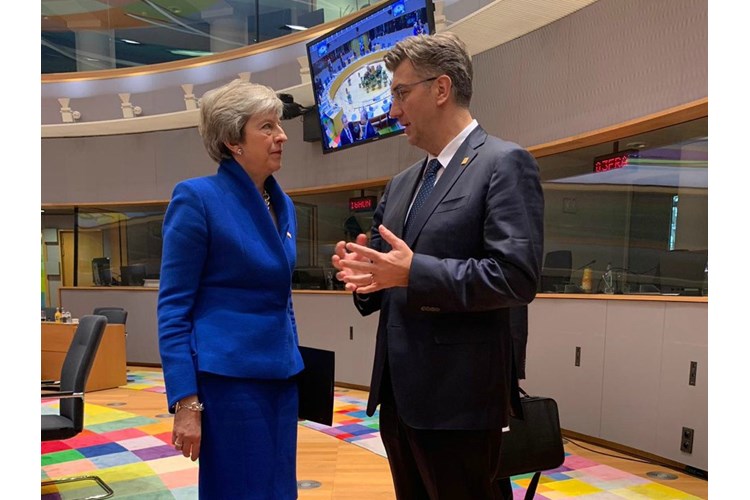


The leaders of the 27 EU member states, meeting at a special summit in Brussels on Sunday, endorsed the withdrawal agreement with the UK and the political declaration on future EU-UK relations.
The toughest part follows after the summit as the British prime minister needs to secure a majority in the British Parliament to support the deal, which at this point is highly uncertain.
Asked if the EU had a fallback plan in case the agreement didn't go through the British Parliament in mid-December, Plenkovic said he wouldn't speculate. "Let's wait for that moment to come. What's clear from the speeches of most colleagues here is that it is quite illusory to expect that a better text will come on the table. In my opinion, this is a good compromise which is very generous to Great Britain, which has decided on its own to leave."
He said that British Prime Minister Theresa May was in an unenviable position because during the campaign preceding the Brexit referendum she had advocated staying in the EU.
Plenkovic reiterated that the country's departure would hit the UK the most, but that the EU would also be affected.
"The Union without Great Britain, a permanent UN Security Council member, a nuclear power, a champion of free trade, a key country globally, is not the same anymore," the Croatian PM said.
He said he was pleased that the agreement had been reached, but that he was not happy that this had happened in the first place. He expressed hope that the Brexit situation would discourage other countries from taking the same path.
"All this that is happening in Great Britain, all these processes are not good at all. They can't focus on any other topic and are only preoccupied with this, which is bad. I think that the lesson from this is that topics like this should be better explained to the public," Plenkovic said.
He mentioned British Eurosceptic member of the European Parliament Nigel Farage as a person who had had the greatest influence on the British public in this matter and recalled that Farage had also taken part in a 2011 referendum campaign in Croatia on the country's EU membership bid.
"Therefore, lessons have been learnt. Now we know what happens when something like this is initiated legally. Politically, anyone who would follow this scenario wouldn't benefit from it. That is more than obvious," Plenkovic concluded.
Text: Hina